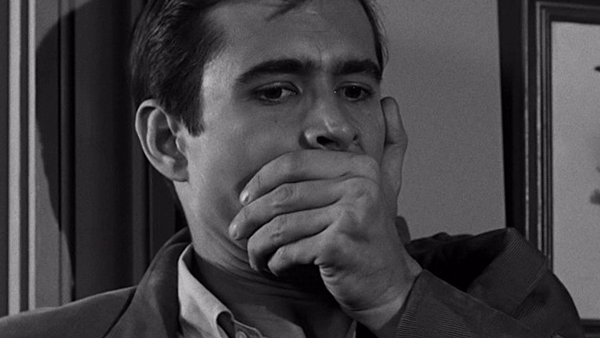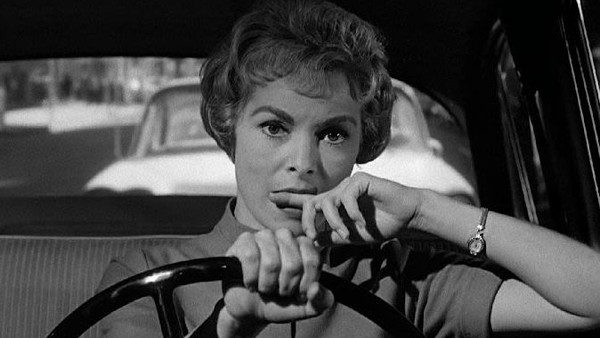How Psycho Tricks You Into Becoming An Accomplice In Murder
"We all go a little mad sometimes."

Psycho is one of the most influential films of the 20th century, and for good reason. Alfred Hitchcock's psychological thriller introduced so many cinema firsts, and inspired a genre in its own right with every seminal slasher movie of the seventies and eighties following in its footsteps.
It truly is a masterpiece, and one of Hitchcock's most suspenseful efforts. It also does something few of its successors would dare attempt, and it all lies in a cunning switch of perspective.
Context is key in this case, and while the effect is undoubtedly lost should it be viewed with the twist already revealed, Anthony Perkins' performance does much to convince the viewer that Norman Bates is a figure to be pitied and not, as is the case with his ghostly parent, reviled.
Together with Hitchcock's direction, Psycho manages to achieve the unthinkable: it makes its audience an accomplice in the story's most pivotal crime.
3. Marion's Scheme, And The Journey To Bates Motel

Although the most iconic moments from Psycho occur once Marion arrives at the foreboding Bates Motel, its opening act could be considered as one of the most suspenseful.
Marion, embroiled in a scheme to make off with $40,000 worth of cash from her employer, is engulfed with anxiety upon making her getaway. Immediately, everyone in view of the camera looks as though they're a potential accuser, with each glance contributing to the overriding sense of unease that pervades Marion's journey to the Bates Motel. This is the first moment where Hitchcock makes the audience fear for Marion, as if they too are making a quick getaway, and it's what makes her arrival at the motel so terrifying; she can't carry on through the storm, but to stop now could mean the difference between making it out of the state with her loot, or years in a Arizonan prison.
But it gets worse. As Marion looses sight of the road, so too does the viewer lose sight of her journey. The neon lights of the Bates Motel, in this instance, don't act as a beacon of refuge, but instead as a warning, with the entire sequence playing out like a nightmare as Marion descends into a locale which both her and the audience are completely unfamiliar with.